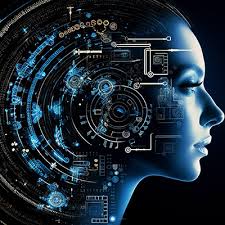The Impact of Artificial Intelligence on Healthcare

Strong 8k brings an ultra-HD IPTV experience to your living room and your pocket.
Artificial Intelligence (AI) is revolutionizing the healthcare industry, enhancing diagnosis accuracy, patient care, and operational efficiency. This article explores the transformative impact of AI in healthcare, its applications, benefits, challenges, and future implications for medical advancements.
Applications of AI in Healthcare
AI technologies are reshaping various aspects of healthcare delivery and management:
Medical Imaging and Diagnostics: AI-powered algorithms analyze medical images (MRI, CT scans) for early detection of diseases and abnormalities.
Virtual Health Assistants: AI-driven chatbots and virtual assistants provide patient education, appointment scheduling, and symptom triaging.
Predictive Analytics: AI models predict patient outcomes, disease progression, and recommend personalized treatment plans based on patient data.
Drug Discovery and Development: AI accelerates drug discovery processes, identifies potential drug candidates, and optimizes clinical trials.
Robot-Assisted Surgery: AI-enabled surgical robots assist surgeons with precision, minimizing human errors and enhancing surgical outcomes.
Benefits of AI in Healthcare
AI offers several advantages that improve patient outcomes and healthcare delivery:
Improved Diagnosis Accuracy: Enhances diagnostic accuracy and early detection of diseases, improving patient prognosis and treatment outcomes.
Personalized Medicine: Tailors treatment plans based on patient genetics, medical history, and real-time health data, improving treatment efficacy and patient satisfaction.
Efficient Healthcare Operations: Optimizes hospital workflows, resource allocation, and administrative tasks, reducing operational costs and enhancing productivity.
Patient-Centered Care: Enhances patient engagement, satisfaction, and access to healthcare services through telemedicine and remote monitoring.
Clinical Decision Support: Provides evidence-based recommendations, clinical guidelines, and alerts to healthcare providers, improving decision-making and patient safety.
Challenges in Adopting AI in Healthcare
Despite its benefits, AI implementation in healthcare faces challenges:
Data Privacy and Security: Safeguarding patient data, complying with healthcare regulations (HIPAA), and preventing unauthorized access.
Interoperability: Integrating AI systems with existing electronic health records (EHRs), medical devices, and healthcare IT infrastructure.
Ethical and Legal Considerations: Addressing ethical dilemmas, bias in AI algorithms, transparency, and accountability in decision-making.
Healthcare Workforce Readiness: Training healthcare professionals in AI technology, adapting to new roles, and overcoming resistance to AI adoption.
Future Outlook of AI in Healthcare
The future of AI in healthcare is characterized by ongoing innovation and transformative advancements:
AI-Driven Precision Medicine: Personalized treatment plans based on genetic profiling, biomarkers, and predictive analytics.
Healthcare AI Ethics: Developing ethical AI frameworks, guidelines, and governance to ensure patient safety and data privacy.
Telemedicine and Remote Care: Expanding access to healthcare services through virtual consultations, remote monitoring, and telehealth solutions.
Global Health Equity: Bridging healthcare disparities, improving access to quality care, and addressing global health challenges through AI-driven solutions.
In conclusion, AI technology is reshaping the healthcare landscape, driving innovation, and improving patient care delivery. Embracing AI innovations, addressing challenges, and fostering collaboration will lead to a future where AI enhances healthcare outcomes and transforms medical practices worldwide.
Tags for "The Impact of Artificial Intelligence on Healthcare"
AI in healthcare
Medical imaging AI
Precision medicine
Telemedicine technology
Healthcare AI applications
AI in drug discovery
Future of healthcare
Patient-centered care
AI ethics in medicine
Digital transformation in healthcare
Description
Explore the transformative impact of Artificial Intelligence (AI) on healthcare, from enhancing diagnosis accuracy and patient care to improving operational efficiency and medical advancements. Discover how AI technologies are revolutionizing medical imaging, personalized medicine, surgery, and healthcare delivery, shaping the future of healthcare innovation and patient outcomes globally.
Note: IndiBlogHub features both user-submitted and editorial content. We do not verify third-party contributions. Read our Disclaimer and Privacy Policyfor details.


